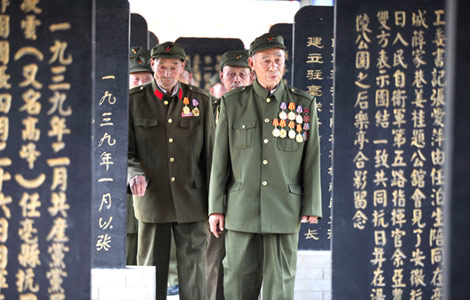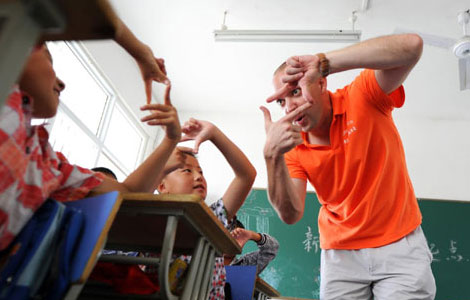Combating loneliness among the elderly
Updated: 2012-10-23 21:27
(chinadaily.com.cn)
|
||||||||
October 23 is the Double Ninth Festival, or the Day for the Elderly in China.
Loneliness and depression have become the most pressing problems for Chinese senior citizens. Most of them don't need to worry about basic life needs as China's development over the last 30 years has improved people's quality of life.
But the family planning policy, urbanization and the disparity between urban and rural regions means many old people must live an empty nesters' life, because their children may work and live in the other places far away from their hometowns.
The population of Chinese aged 60 and older hit 185 million in 2011 and will reach about 225 million by 2015, accounting for 16 percent of the national total.
The Chinese government should not only provide the elderly with nursing homes but also mobilize society to pay more attention to the empty nesters' feelings.
Compared with establishing a nationwide pension system and medical care network, it is much easier to solve the loneliness problem.
The authorities should make a good use of the older citizens. Experience in Hong Kong and Japan suggests old people's knowledge, skills and expertise are valuable assets to society. If they can still have opportunities to work, they will have a sense that they are still useful and can make more contributions to the society.
Even if it is unrealistic to frequently visit their parents, children who work and live far away from parents should call and talk to them as often as possible to relieve their feelings of loneliness -- the most common cause for mental depression.
The grassroot communities should also organize more activities for old residents and help them overcome their loneliness through games, sports and the other teamwork activities.
Social organizations can also launch various volunteer projects to help lonely senior citizens.
Filial piety is a tradition in Chinese culture. We should do our best to main the tradition and give equal respect and care to both ends of life.
Translated from Beijing News Daily











